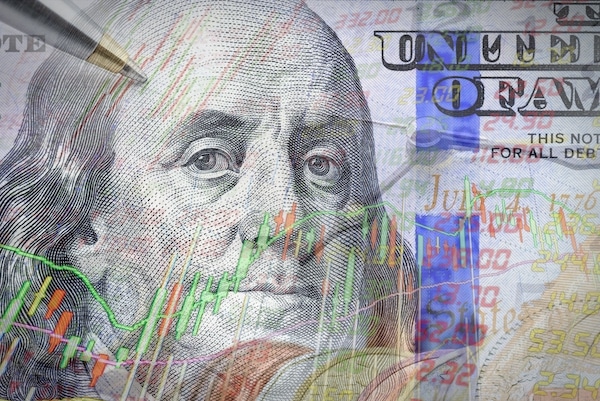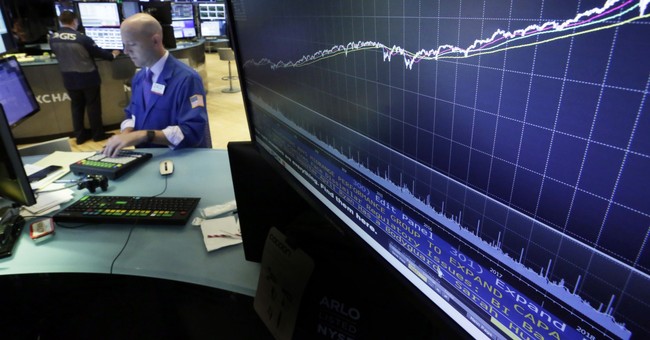Via ETF Daily News
For decades, I’ve been going to investment conferences where wild-eyed, hard-money types claimed the federal government is out to confiscate our private wealth with confiscatory taxes. ”Get your money out of the country,” one famously said, “before your country gets the money out of you.”
conferences where wild-eyed, hard-money types claimed the federal government is out to confiscate our private wealth with confiscatory taxes. ”Get your money out of the country,” one famously said, “before your country gets the money out of you.”
I chuckled at the time. But lately I’ve been thinking it’s less funny.
According to Americans for Tax Reform, a nonprofit taxpayer advocacy group, since taking office in 2009, President Obama has formally proposed 442 tax increases. That does not include the 20 tax increases Obama signed into law as part of the Affordable Care Act.
in 2009, President Obama has formally proposed 442 tax increases. That does not include the 20 tax increases Obama signed into law as part of the Affordable Care Act.
If you’re a high-income earner in this country, you face a 39.6% top marginal income tax rate, an average 6% state income tax, Social Security taxes (both sides if you’re self-employed) and unlimited Medicare taxes. That means your state and federal government can easily take the majority of what you earn.
tax rate, an average 6% state income tax, Social Security taxes (both sides if you’re self-employed) and unlimited Medicare taxes. That means your state and federal government can easily take the majority of what you earn.
If that’s not confiscation, what is?
Every thinking person understands that government services are essential to society – and that requires taxes. The free market provides no financial incentive for defending the shores, protecting your rights or launching a space telescope.
incentive for defending the shores, protecting your rights or launching a space telescope.
Your Government in Action
But because government lacks a profit motive, it is horribly wasteful and inefficient. Take the Post Office, for example.
The U.S. Postal Service has operated in the red for the last six years and reported a $2 billion loss last quarter alone. (It will also default for a fourth consecutive year on its $5.7 billion prefunding payment for retiree health benefits.)
has operated in the red for the last six years and reported a $2 billion loss last quarter alone. (It will also default for a fourth consecutive year on its $5.7 billion prefunding payment for retiree health benefits.)
By contrast, United Parcel Service, Inc.(NYSE:UPS) made $3.63 billion over the last 12 months. FedEx Corporation (NYSE:FDX) earned $2.1 billon over the same period. Its earnings were up 141% in the most recent quarter.
(NYSE:FDX) earned $2.1 billon over the same period. Its earnings were up 141% in the most recent quarter.
Other government agencies are just as bad – or worse. Amtrak, for instance, loses over $70 million a year – on its food service alone. Yet Congress refuses to privatize even that small portion of this multibillion-dollar money loser.
Begrudging Success
Unlike government, private-sector firms are knocking themselves out every day to bring us products and services that are better, cheaper, greener and/or longer lasting. Those who invest in these companies often do well financially.
in these companies often do well financially.
Some people resent that. And their numbers are growing.
You may have noticed, for instance, that “income inequality” has become a hot-button political issue. Why is this phrase catching on?
inequality” has become a hot-button political issue. Why is this phrase catching on?
One reason is that we live in a knowledge society and workers with higher-value skills are seeing their incomes rise faster than those with less education or less commercially valuable skills.
But it’s also because “income inequality” is harped on endlessly in the media, even without a news story to justify it. Bear in mind, these are the same folks who turned pork barrel spending into “infrastructure investments,” tax increases into “revenue enhancers,” and global warming into “climate change.” (Turns out the phrase “global warming” didn’t play well in the northern latitudes.)
warming into “climate change.” (Turns out the phrase “global warming” didn’t play well in the northern latitudes.)
In short, income inequality is the replacement phrase for a very old idea: redistribution.
Why the change? Because polls show the majority of Americans oppose redistribution.
But who can oppose equality? That’s like being against “truth, justice and the American way.”
To make the gulf between high- and low-income earners as wide as possible – and therefore as unequal as possible – academics and the mainstream media routinely fail to subtract federal and state income taxes paid by the wealthiest or include transfer payments (like food stamps, welfare, subsidized housing and Medicaid) received by those with the least.
and the mainstream media routinely fail to subtract federal and state income taxes paid by the wealthiest or include transfer payments (like food stamps, welfare, subsidized housing and Medicaid) received by those with the least.
They also point out that the long-running bull market in stocks and bonds has widened the gap between haves and have-nots.
in stocks and bonds has widened the gap between haves and have-nots.
However, a new survey by Bankrate.com reveals that 36% of Americans have put aside nothing for retirement.
Zero. Nada. Zilch.
Beyond these folks, tens of millions more have saved virtually nothing. And tens of millions more beyond that have risked nothing.
In other words, they may have some savings but no stocks, bonds or mutual funds. (Even though some fund families – like American Century – have no minimum investment requirements.) Less than half of Americans own equities either directly or indirectly.
What You Make of It
You don’t have to be a financial genius to recognize that if you don’t save anything or invest anything, you aren’t going to have much of anything.
genius to recognize that if you don’t save anything or invest anything, you aren’t going to have much of anything.
Certainly, some people, through no fault of their own, haven’t had enough income to save. These folks deserve our compassion and a safety net. But can that really describe 36% of our citizens?
Like me, you’ve probably met a lot of folks with a good-sized home, two late-model cars, big flat-screen TVs and lots of other bling… and little or nothing saved for retirement.
There are millions of them out there. And some politicians see a political opportunity here. They assure these non-savers that they haven’t made poor choices or acted irresponsibly. It’s that society is unjust. And confiscatory tax rates can fix that.
here. They assure these non-savers that they haven’t made poor choices or acted irresponsibly. It’s that society is unjust. And confiscatory tax rates can fix that.
If you’re going to take the fruits of someone’s labor at the point of a gun, however, you need to claim that they gained it unfairly. Hence we have this new class warfare rhetoric… and the increasing demonization of wealth.
Clear Solutions
Of course, if politicians really wanted to end income inequality they could replace our broken public education system (with school choice), reform the criminally complicated tax code or fix our soon-to-be-insolvent entitlement programs.
But that would entail making a lot of unpopular decisions that would endanger their incumbency.
And so they demonize investors and the affluent, claim that the playing field isn’t level and promise to fix it with higher tax rates.
Last year French President Francois Holland – who once said he “didn’t like” the rich – proposed a 75% top tax rate for corporate earnings. This year he wants to apply it to salaries.
Could it happen here? It already has – and may again. (At its peak, the top U.S. tax rate was a whopping 91%.)
Consider President Obama’s remark that we’re in danger of becoming a country where economic success is reserved for a fortunate few.
is reserved for a fortunate few.
Parse those words. Economic success is “reserved,” not earned. It accrues not to people who educate themselves, work hard and take risks but are “fortunate.”
Before you can confiscate wealth, you have to demonize the creation of it.
Is that not happening now?
Good investing,
by Alexander Green, Chief Investment Strategist
Investment U provides cutting-edge research and strategic financial recommendations for all levels of investors through its morning publication Investment U Daily and its related publications.






